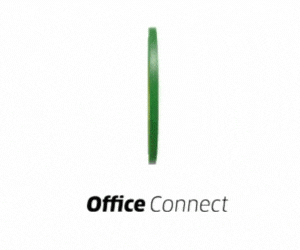As a small business owner, managing the cost of office supplies is a crucial aspect of maintaining a productive and financially responsible operation. From stationery essentials to technology-driven tools, the expenses associated with equipping your workspace can quickly add up. This article aims to provide you with practical tips to effectively manage and optimize your spending on office necessities, ensuring your business runs smoothly without breaking the bank.
By understanding the necessity of office supplies, implementing cost-saving strategies, and leveraging technology, you can strike a balance between maintaining a well-stocked, efficient office and keeping your overhead costs in check. Whether you’re a startup entrepreneur or a seasoned small business owner, the insights shared here will empower you to take control of your office supply budget and allocate resources in a way that supports your company’s growth and success.
Key Takeaways
- Understand the essential office supplies needed for daily operations and productivity
- Develop a strategic budget for office supplies to control costs
- Explore cost-effective purchasing strategies, such as bulk buying and online shopping
- Implement inventory management and storage practices to minimize waste
- Leverage technology to streamline the procurement and tracking of office supplies
Understanding the Necessity of Office Supplies
Maintaining a well-stocked office is crucial for the success of any small business. Office essentials expenses, such as pens, paper, and basic stationery, are the backbone of daily operations. These budget for workplace materials not only facilitate smooth workflow but also contribute to improved productivity and efficiency.
Essentials for Daily Operations
A comprehensive set of office supplies ensures that your team can quickly access the tools they need to complete their tasks. From writing instruments and notepads to file folders and staplers, these stationery costs for startups enable your employees to stay organized and focused, ultimately supporting the overall productivity of your business.
Improving Productivity and Efficiency
- Well-stocked supplies prevent delays and frustrations caused by missing or depleted items.
- Organized storage and easy accessibility of supplies contribute to a streamlined workflow.
- High-quality office essentials, such as reliable pens and durable folders, reduce the need for frequent replacements.
By investing in the right office essentials expenses, small business owners can create an environment that empowers their team to work at their best, ultimately driving the success of the company.
| Office Supply | Quantity Needed | Estimated Cost |
|---|---|---|
| Pens | 50 per month | |
| Paper | 5 reams per month | |
| Folders | 25 per quarter | |
| Staplers | 2 per year |
“Investing in quality office supplies is an investment in the productivity and efficiency of your team.”
Budgeting for Office Supplies
Effectively managing the budget for workplace materials, overhead for office necessities, and expenditure on business supplies is crucial for the success of any small business. By carefully planning and allocating funds for these essential items, you can ensure your operations run smoothly without overspending.
When creating a budget for office supplies, consider factors such as your past spending patterns, the anticipated usage of various items, and potential price fluctuations in the market. This will help you estimate the appropriate amount of funds to set aside in your overall business budget.
To assist with budgeting, it’s helpful to categorize your office supply needs into must-have items and nice-to-have items. Must-have items are the essential supplies that are necessary for daily operations, while nice-to-have items are the supplementary items that can enhance productivity but are not strictly required.
| Must-Have Items | Nice-to-Have Items |
|---|---|
|
|
By prioritizing your office supply needs and allocating funds accordingly, you can ensure your business has the necessary workplace materials while keeping overhead for office necessities and expenditure on business supplies under control.
Cost-Effective Strategies for Purchasing Supplies
As a small business owner, finding ways to save on office supply costs is crucial for maintaining a healthy bottom line. Fortunately, there are several cost-effective strategies you can employ when it comes to purchasing the necessary supplies for your entrepreneurial endeavors.
Bulk Buying and Discounts
One of the most effective ways to save on office supplies is to buy in bulk. By purchasing larger quantities of frequently used items, you can often take advantage of discounted pricing and enjoy significant savings over time. Look for opportunities to take advantage of bulk order discounts, whether from your regular suppliers or by exploring wholesale options.
Online vs. Offline Shopping
When it comes to sourcing your pricing for workspace basics, the decision to shop online versus offline can have a substantial impact on your outlays for entrepreneurial office gear. Online retailers often offer a wider selection of cost-effective office provisions and the convenience of having items delivered directly to your doorstep. However, don’t overlook the potential benefits of local brick-and-mortar stores, which may provide personalized service, immediate availability, and the opportunity to negotiate prices.
Ultimately, the key to cost-effective purchasing is to explore all available options, compare prices, and find the best balance between convenience, selection, and savings. By leveraging these strategies, you can ensure that your small business has access to the necessary office supplies without breaking the bank.
cost of office supplies for small business
As a small business owner, the cost of office supplies can quickly add up, becoming a significant portion of your overall overhead expenses. From essential stationery items like pens and paper to specialized equipment like printers and scanners, the expenditure on business supplies can vary widely depending on your industry, location, and the size of your operation.
According to a recent study, the average small business in the United States spends around $2,000 to $5,000 per year on office supplies. This can include a range of items such as:
- General office stationery (pens, pencils, notebooks, etc.)
- Printing and copying supplies (toner, ink cartridges, paper)
- Cleaning and maintenance supplies (cleaning products, trash bags, etc.)
- Technology accessories (USB drives, cables, mouse pads, etc.)
- Specialty items (label makers, staplers, hole punchers, etc.)
The cost of office supplies for small businesses can be influenced by several factors, including:
- Industry: Certain industries, such as professional services or creative agencies, may require more specialized and expensive supplies compared to others.
- Geographic Location: The cost of office supplies can vary depending on the region, with higher prices in urban areas or areas with a higher cost of living.
- Business Size: Larger small businesses may be able to take advantage of bulk discounts, while smaller operations may have less purchasing power.
| Office Supply Item | Average Cost |
|---|---|
| Pens (per dozen) | |
| Printer Paper (per ream) | |
| Toner Cartridge (black) | |
| Staples (per 1,000) | |
| Binder Clips (per box of 12) |
By understanding the typical cost of office supplies for small businesses, you can better plan and budget for these necessary expenses, ensuring that your office operations run smoothly and efficiently.
Prioritizing Office Supply Needs
Effectively managing your small business’s stationery costs can make a significant difference in your overall operational expenses. As an entrepreneur, it’s crucial to strike a balance between securing the essential office supplies and avoiding overspending on unnecessary items. By prioritizing your office supply needs, you can ensure your startup or small-to-medium enterprise (SME) has the necessary resources to maintain productivity and efficiency, without breaking the bank.
Must-Have Items
When it comes to stationery costs for startups, there are certain items that are essential for daily operations. These must-have supplies include:
- Pens and pencils
- Notebooks and notepads
- Printer paper and ink cartridges
- Paperclips, staplers, and other basic organizational tools
- Cleaning supplies for the workspace
Investing in these workspace basics ensures your team has the tools they need to stay productive and efficient, without overspending on the pricing for workspace basics.
Nice-to-Have Items
In addition to the must-have items, there are some nice-to-have office supplies that can enhance productivity and convenience, but are not necessarily essential for daily operations. These economical stationery options for SMEs include:
- Ergonomic desk accessories (e.g., standing desks, adjustable chairs)
- Desk organizers and storage solutions
- Whiteboards or bulletin boards for collaboration
- High-quality presentation materials (e.g., folders, binders, report covers)
While these items may not be crucial for your startup’s survival, they can contribute to a more comfortable and efficient work environment, ultimately benefiting your team’s productivity and your overall business operations.
Inventory Management and Storage Tips
Effective inventory management and strategic storage solutions are crucial for small businesses aiming to optimize their budget for workplace materials, overhead for office necessities, and expenditure on business supplies. By implementing a system to track usage, maintain appropriate stock levels, and organize storage, small business owners can minimize waste and ensure the availability of necessary office supplies.
One of the key steps in inventory management is regularly reviewing usage patterns. By closely monitoring how quickly certain supplies are consumed, you can better forecast future needs and adjust your ordering accordingly. This helps prevent overstocking, which can lead to wasteful overhead for office necessities, as well as understocking, which can interrupt daily operations and productivity.
- Establish a system to track inventory levels and usage trends.
- Identify minimum and maximum stock thresholds for essential supplies.
- Automate reordering processes to maintain optimal inventory levels.
In addition to managing inventory, optimizing storage solutions can significantly impact your budget for workplace materials. Investing in smart storage systems, such as shelves, cabinets, or even digital inventory tools, can help you maximize the use of limited office space and ensure that supplies are easily accessible when needed.
| Storage Solution | Benefits |
|---|---|
| Shelving Units | Efficient use of vertical space, clear visibility of stock levels |
| Labeled Bins and Containers | Organized storage, easy retrieval of items |
| Digital Inventory Tracking | Real-time visibility of stock, automated reordering |
By implementing a comprehensive inventory management system and optimizing storage solutions, small businesses can effectively manage their expenditure on business supplies, ensuring that essential office items are readily available while minimizing waste and unnecessary overhead for office necessities.
Reducing Waste and Promoting Sustainability
As small and medium enterprises (SMEs) strive to optimize their operations, the need for cost-effective office provisions and economical stationery has become increasingly crucial. However, sustainability should not be overlooked in this pursuit. This section will explore strategies to reduce waste and promote eco-friendly practices when it comes to office supplies.
Eco-Friendly Office Supplies
Replacing traditional office supplies with their eco-friendly counterparts can have a significant impact on an SME’s environmental footprint. Consider the following options:
- Recycled paper and notebooks: Opt for paper products made from recycled materials, reducing the demand for virgin resources.
- Refillable pens and pencils: Invest in high-quality, refillable writing instruments to minimize waste from disposable alternatives.
- Biodegradable cleaning products: Choose eco-friendly cleaning supplies that are gentle on the environment and your workspace.
- Energy-efficient electronics: When upgrading office equipment, prioritize models with energy-saving features to reduce power consumption.
These cost-effective office provisions and economical stationery solutions not only benefit the environment but also contribute to the long-term sustainability of your SME’s operations.
“Sustainable practices are not only good for the planet, but they can also lead to significant cost savings in the long run.”
By adopting these eco-friendly initiatives, SMEs can demonstrate their commitment to environmental responsibility while optimizing their bottom line.
Negotiating with Vendors and Suppliers
As a small business owner, effectively negotiating with vendors and suppliers can be a game-changer when it comes to pricing for workspace basics, outlays for entrepreneurial office gear, and securing cost-effective office provisions. By building strong relationships and leveraging your purchasing power, you can unlock valuable savings and optimize your office supply budget.
One of the keys to successful negotiations is understanding the vendor’s perspective. Take the time to learn about their pricing structures, profit margins, and any volume-based discounts they offer. This knowledge will allow you to identify areas where you can potentially negotiate better terms.
- Explore alternative sourcing options: Don’t be afraid to shop around and compare prices from multiple vendors. This competitive pressure can give you an edge in negotiations.
- Leverage your order volume: If you consistently place large orders, don’t hesitate to request volume discounts or special pricing tiers.
- Negotiate payment terms: Discuss the possibility of extended net terms or flexible payment options that can improve your cash flow and overall cost structure.
Remember, effective negotiation is a skill that can be honed over time. Approach each interaction with a collaborative mindset, focusing on creating a win-win scenario for both parties. By mastering the art of vendor and supplier negotiations, you can unlock significant savings and streamline your cost-effective office provisions.
| Negotiation Tactic | Potential Benefit |
|---|---|
| Bulk Purchasing | Volume-based discounts |
| Flexible Payment Terms | Improved cash flow management |
| Exploring Alternative Suppliers | Competitive pricing and better deals |
“Successful negotiation is not about getting to ‘yes,’ it’s about mastering the art of building trust and finding common ground.”
Tax Deductions and Accounting for Office Supplies
As a small business owner, managing your office supply expenses can be a crucial aspect of maintaining a healthy financial foundation. Fortunately, the tax code provides opportunities to offset some of these costs through strategic deductions. By understanding the eligibility criteria and proper documentation, you can maximize your tax savings and improve your overall budget for workplace materials.
One of the primary ways to reduce your overhead for office necessities is to deduct the cost of office supplies as a legitimate business expense. This includes the expenditure on business supplies such as pens, paper, ink cartridges, and other consumables necessary for your daily operations. To ensure compliance, it’s crucial to maintain detailed records of all your supply purchases and their business-related use.
- Identify eligible deductions: Familiarize yourself with the IRS guidelines to determine which office supply expenses qualify for tax deductions.
- Implement effective accounting practices: Develop a streamlined system for tracking and documenting your supply purchases, including receipts and invoices.
- Leverage technology: Utilize accounting software or cloud-based solutions to simplify the process of managing your office supply expenses and preparing for tax filings.
- Consult with a tax professional: Consider working with a qualified accountant or tax advisor who can provide personalized guidance on maximizing your office supply deductions.
By taking advantage of these strategies, you can not only reduce your overhead for office necessities but also ensure that your business is positioned for long-term financial success. Staying organized and proactive with your office supply accounting can ultimately lead to a stronger bottom line and a more sustainable small business.
Leveraging Technology to Streamline Processes
In the digital age, small business owners have a wealth of technological tools at their disposal to streamline their office supply procurement processes. By embracing innovative solutions, you can enhance efficiency, reduce costs, and ensure a well-stocked office, all while maintaining a focus on cost-effective office provisions and economical stationery for SMEs.
Online Ordering and Delivery
One of the most significant advantages of technology in the office supply realm is the ability to order cost-effective office provisions and economical stationery for SMEs online. Online ordering platforms offer a wide range of products, competitive prices, and the convenience of direct-to-door delivery. This eliminates the need for time-consuming in-person trips to retail stores, allowing you to focus on your core business activities.
- Streamlined ordering process
- Access to a broader selection of products
- Competitive pricing and discounts
- Seamless delivery to your doorstep
By leveraging online ordering and delivery services, you can optimize your office supply management, reducing the time and resources invested in procurement while ensuring a steady supply of the necessary cost-effective office provisions and economical stationery for SMEs.
Seeking Advice from Industry Experts
As a small business owner, managing the budget for workplace materials, overhead for office necessities, and overall expenditure on business supplies can be a daunting task. However, seeking advice from industry experts can be a game-changer in optimizing your office supply strategy and ensuring cost-effectiveness.
Consulting with experienced accountants can provide valuable insights into tax deductions and accounting practices related to office supplies. These professionals can help you navigate the complexities of financial reporting and identify potential areas for savings.
Additionally, procurement specialists can offer guidance on negotiating with vendors, leveraging bulk purchasing discounts, and implementing efficient inventory management systems. Their expertise can help you streamline your overhead for office necessities and keep your expenditure on business supplies under control.
Don’t overlook the wisdom of seasoned small business owners who have navigated similar challenges. Seeking their advice can provide practical tips on managing budgets for workplace materials, identifying must-have versus nice-to-have items, and implementing cost-saving strategies tailored to your industry.
By tapping into the knowledge and experience of industry experts, you can make informed decisions, optimize your overhead for office necessities, and gain a competitive edge in managing your expenditure on business supplies. Don’t hesitate to invest time and resources in seeking guidance – it could be the key to streamlining your office supply costs and driving your small business to greater success.
Conclusion
As we’ve explored throughout this article, the cost of office supplies for small businesses is a crucial aspect of managing overhead and maintaining a productive workspace. From understanding the necessity of essential office items to implementing cost-effective strategies, the insights shared here can help you optimize your expenses and allocate resources more effectively.
By prioritizing your office supply needs, leveraging technology to streamline processes, and negotiating with vendors, small business owners can gain greater control over their expenditure on business supplies. Whether you’re a startup or an established enterprise, adopting a holistic approach to managing the cost of office essentials can contribute to your overall financial health and operational efficiency.
Remember, investing in the right office supplies not only supports your daily operations but also enhances productivity and promotes a positive work environment. By striking the right balance between essential and nice-to-have items, small businesses can create a workspace that fosters creativity, collaboration, and success. Embrace the strategies outlined in this article, and unlock the potential to optimize the cost of office supplies for your small business.






